The Power of Ideas
Leaders & Idealists
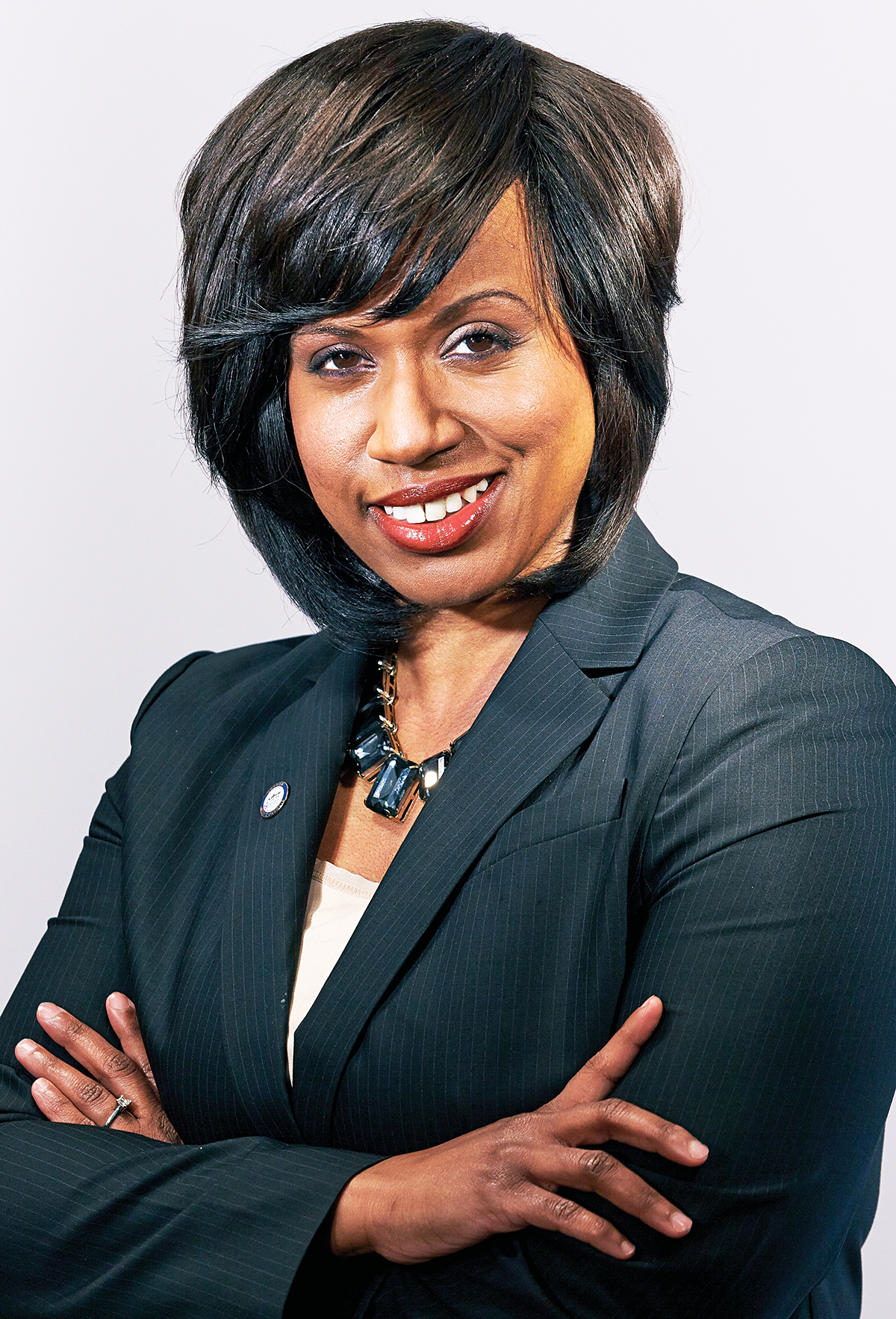
Photograph by Jeff Brown. Styling by Maryelle O’Rourke/Team.
EQUALITY STARTS HERE
Ayanna Pressley
City Councilor at Large
“Every morning, I pray, drink coffee, put on red stilettos, and head out to change the world.” That’s Pressley’s unique approach to getting things done. Everyone wanted her to run for something this past year—mayor, statewide office, even federal office. Instead she’s intent on tackling some of Boston’s toughest issues: improving the lives of women in the city; overhauling sex education in schools; and fighting the root causes of economic disparity, from liquor-license reform to discriminatory hiring practices. Pressley also launched the Elevate Boston coalition to encourage mayoral candidates to focus on women’s and LGBT issues. No matter where she goes next, her powerful social-justice agenda will follow.
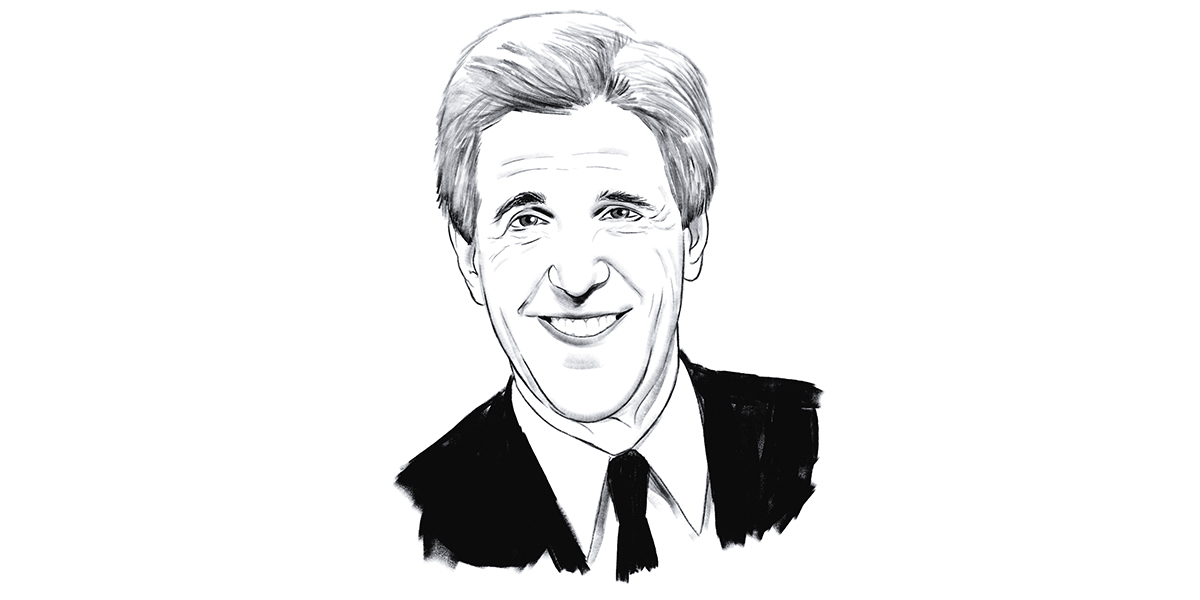
Illustration by Joel Kimmel
GO-BIG-OR-GO-HOME DIPLOMACY
John Kerry
U.S. Secretary of State
Speaking of the Middle East peace talks, an anonymous Western official told Haaretz last May, “Sometimes there’s a feeling that Kerry thinks the only reason his predecessors in the job didn’t bring about a peace agreement is that they weren’t John Kerry.” Some would argue it’s precisely that idealism that’s been missing from American foreign policy. “I may fail. I don’t care. It’s worth doing,” Kerry has said of the talks. No matter how intractable the situation or belligerent the players, Kerry bounds onto the scene believing he can negotiate a solution. And now, unburdened by the pursuit of higher office, he’s free to set his own course.
CREATING THE NEXT GENERATION OF PEACEMAKERS
Eric Dawson
President and Cofounder, Peace First
It’s tempting to shield children from the world’s harshest realities, but Dawson sees the innocence of youth as an opportunity to foster positive change. Over the past 13 years, Dawson has transformed Peace First into a national institution that teaches and supports peacemaking skills. At last year’s Clinton Global Initiative, it launched the Peace First Prize—a $25,000 annual award given to five to 10 kids, ages eight to 22, for their grassroots initiatives to prevent bullying, stop gun violence, and fight injustice. Through the prize, Peace First aims to create the next generation of thought leaders.
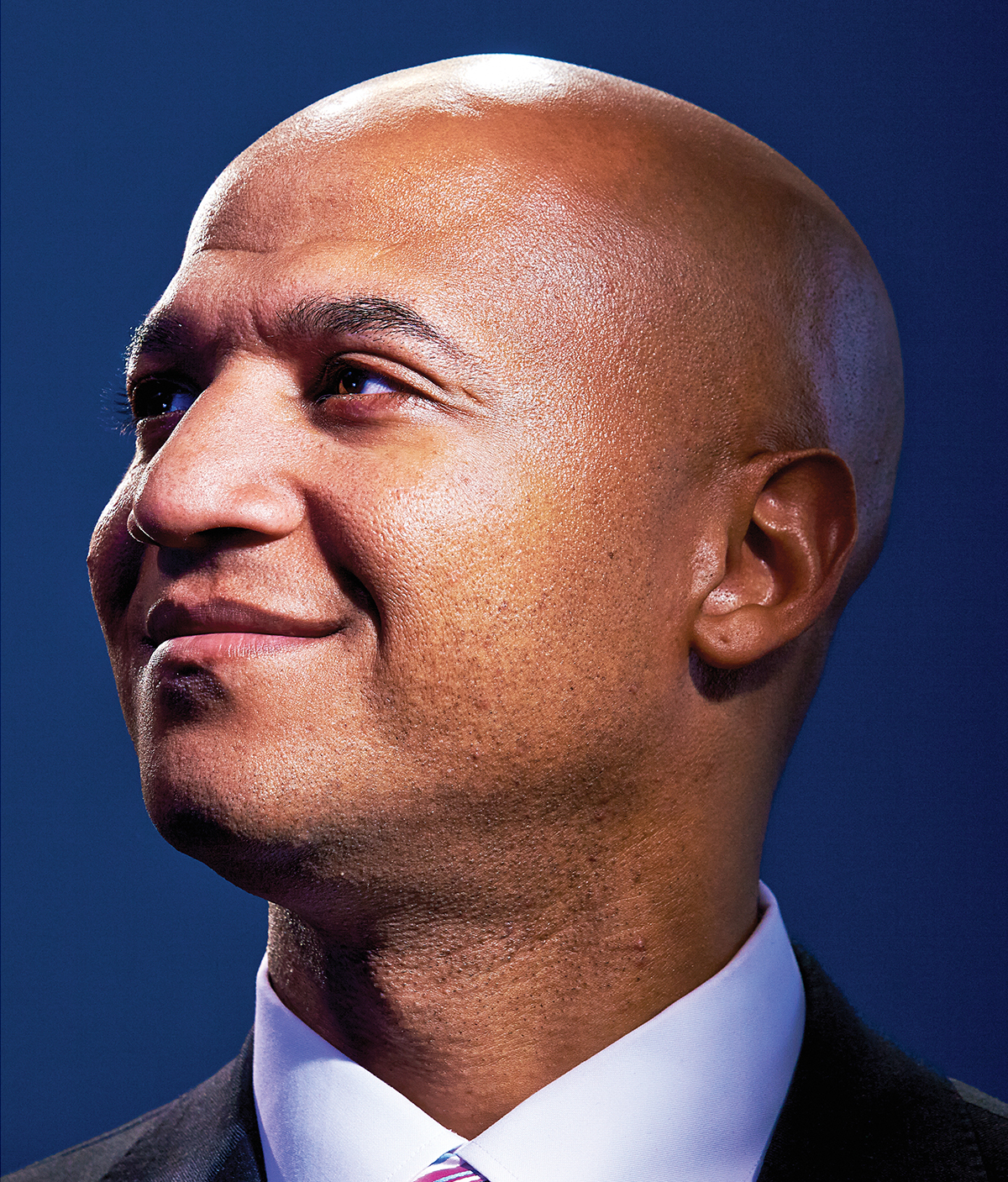
Photograph by Jeff Brown. Styling by Maryelle O’Rourke/Team.
SMART GROWTH
John Barros
Chief of Economic Development, City of Boston
After showing off his deep policy knowledge in an underdog campaign for mayor, Barros has become a household name in Boston. But his wide-ranging expertise, from housing to education to public safety, is nothing new to City Hall insiders. Now, tapped by Mayor Marty Walsh to head the city’s economic development, Barros will get to apply his progressive but pragmatic approach to every corner of the city. “I would argue he probably has the most powerful economic position in the city of Boston right now to make a difference going forward,” says John Fish.
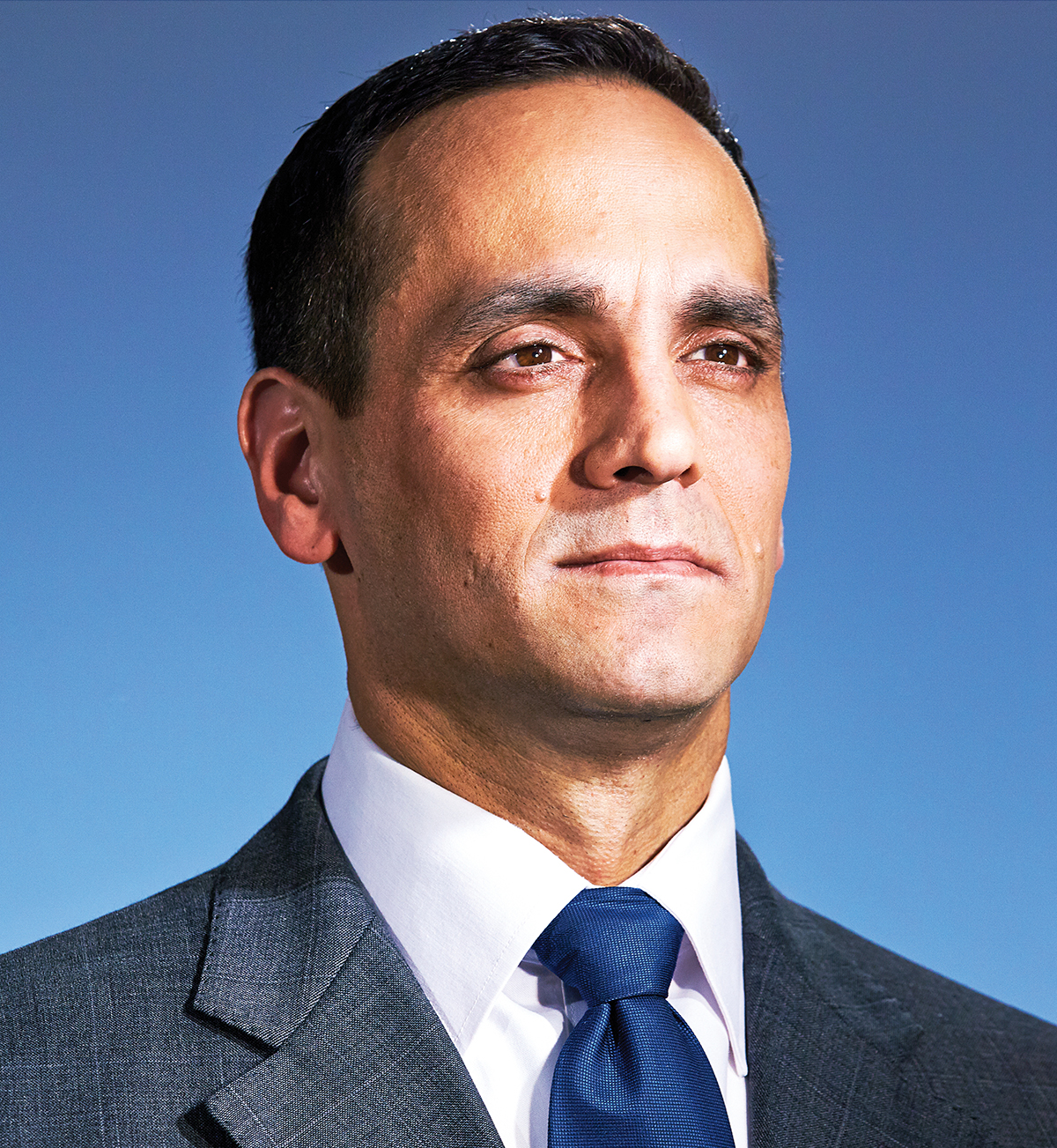
Photograph by Jeff Brown. Styling by Maryelle O’Rourke/Team.
THE CITY AS URBAN LABORATORY
Joe Curtatone
Mayor of Somerville
Since taking office in 2004, Curtatone has been at the vanguard of municipal governance. He fixed a crippling budget deficit using a homegrown data analytics tool, SomerStat, and overhauled the city’s constituent services center. Somerville’s economy is booming, and Curtatone is campaigning for more growth—from Legoland in Assembly Square to the long-delayed Green Line extension. It seems his penchant for adopting new ideas is paying off: Curtatone was just named an Ash Fellow at Harvard’s Kennedy School to help teach others how it’s done.

Photograph by Jeff Brown. Styling by Maryelle O’Rourke/Team.
CHAMPIONING BOSTON’S CREATIVE CLASS
Greg Selkoe and Malia Lazu
Future Boston
Selkoe, founder of the online streetwear empire Karmaloop and a former BRA staffer, often tangled with Mayor Menino. Boston, Selkoe argued, just wasn’t fun enough. Frivolous? Not really. Future Boston, the nonprofit he runs with activist Malia Lazu, has been responsible for turning “fun” into a campaign issue and pushing to make the city a place where young professionals can thrive.
MUSEUMS MUST SUPPORT THEMSELVES
Dan Monroe
Director and CEO, Peabody Essex Museum
Even without Malcolm Rogers’s impending retirement from the MFA, Dan Monroe would be the lead candidate for the region’s most dynamic museum director. Since taking the helm of the Peabody Essex in 1993, Monroe has overhauled the model for museum stewardship—knowing it’s no longer enough to rely on gift-shop sales and annual contributions to keep an institution afloat. He’s increased the museum’s budget from $3.4 million to $24 million and aims to grow its endowment to $630 million—ensuring that the PEM’s funding sources will remain solvent if the whims of the market (or less-engaged young patrons) affect the bottom line. The PEM’s forthcoming $650 million renovation will push the institution into the top 10 museums in the country in terms of gallery space, and Monroe’s dream team of curatorial talent will undoubtably use it, as they continue to bring groundbreaking exhibits to Salem year after year.
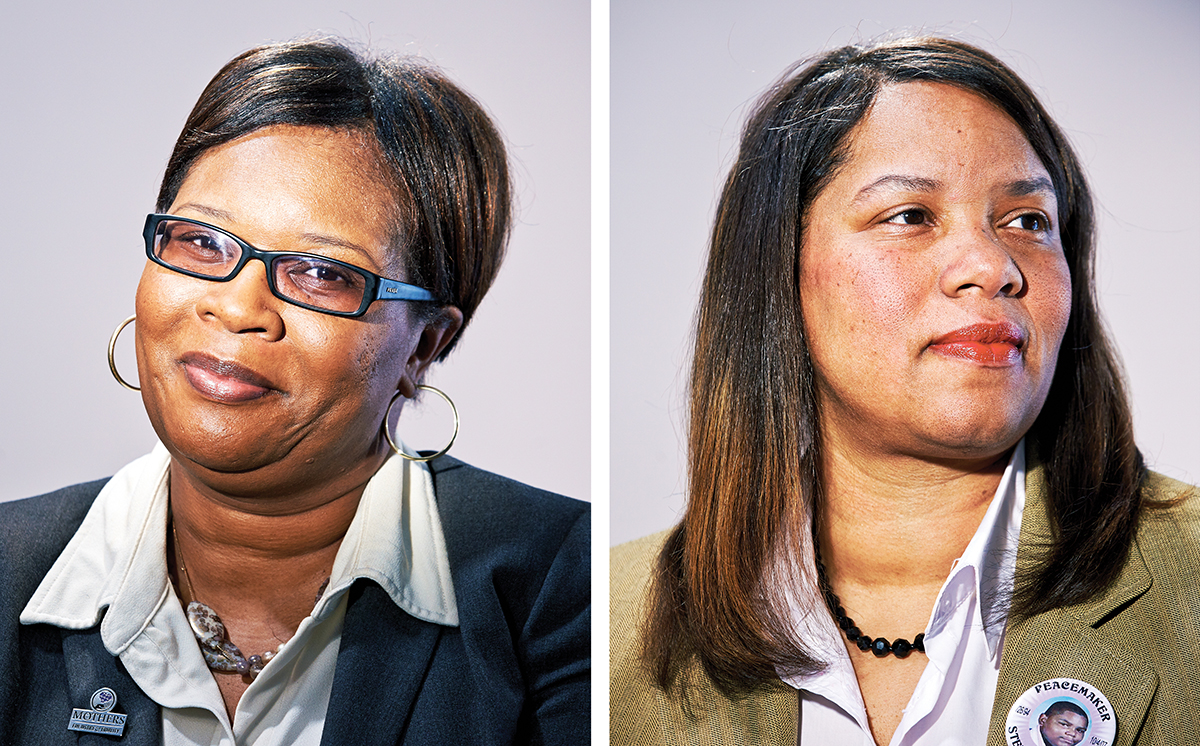
Photographs by Jeff Brown. Styling by Maryelle O’Rourke/Team.
EMPOWERED AND ENGAGED MOTHERS ARE THE KEY TO ENDING VIOLENCE
Monalisa Smith and Kim Odom
President, Mothers for Justice and Equity; Pastor and Peace Activist
They are known simply as “The Mothers”—the survivors left standing after their children were taken from them by Boston’s plague of urban violence—and in a few short years they have created a power base out of powerlessness. Together, Smith (left) and Odom have reshaped the way Boston responds to trauma, using strategies that are “grounded,” as they’ve written, “in the principles of restorative justice, an approach promoting the belief that healing through social connectivity and engagement will prevent street violence and lead to healthier, more vibrant communities.” The mothers have built, from their grief, a grassroots movement that seeks to hold the rest of the city accountable when a life is lost—and attempts to make the city whole again.
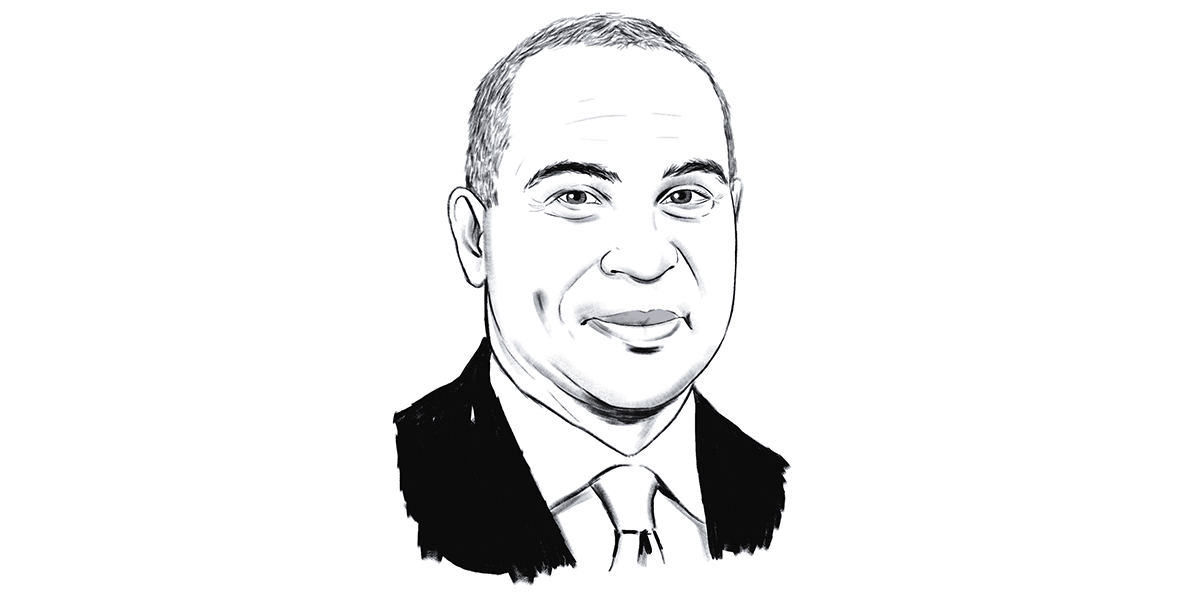
Illustration by Joel Kimmel
MAKE BIG PLANS
Deval Patrick
Governor
For proof of Patrick’s impact on American politics, look no further than the White House: Many of the ideas that led to Obama’s election were on display during Patrick’s 2006 campaign. In his eight years in office, he’s governed by championing big plans like expanding healthcare, attacking a decades-long transportation crisis, and pushing for the development of our technology, life-science, and clean-energy sectors, which not only helped generate jobs but also kept us at the forefront of the nation’s economic recovery. Beacon Hill insiders have long whispered that Patrick just doesn’t get their politics, while true believers and cynics alike have speculated that his future was too bright for him to stick around. And yet he has. He’s the only multiterm governor to serve the state without seeking higher office in almost 150 years, and along the way, he has made an impact that will be felt for years to come. But I’d argue that his power isn’t in what he’s done as much as in how he’s done it. He has made us believe once again that service and big ideas have a place in political life, and in so doing inspired a generation of grassroots activists, first-time candidates, and everyday idealists to take a chance on a couple of big ideas of our own. —Liz Morningstar, CEO, Boston Public Market
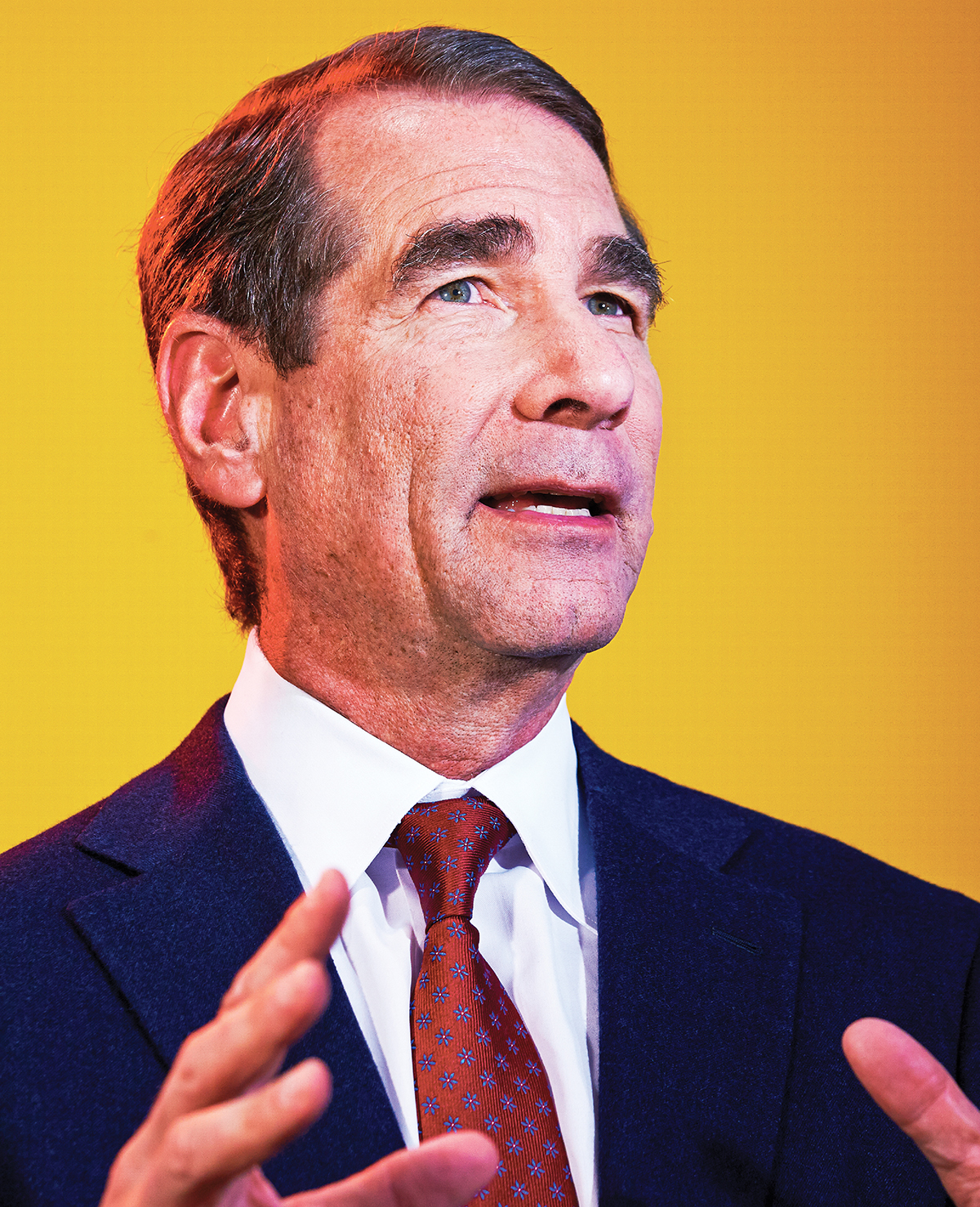
Photograph by Jeff Brown. Styling by Maryelle O’Rourke/Team.
EDUCATION STARTS WITH PUBLIC SERVICE
Alan Solomont
Dean, Tisch College of Citizenship and Public Service
After a three-year stint as U.S. ambassador to Spain and Andorra, Solomont is tackling his next big challenge: higher education. The new dean of the Tisch College of Citizenship and Public Service at Tufts is leading the charge for the university’s Tufts 1+4 program, a game-changing “bridge year” initiative through which accepted students complete one year of full-time service before beginning their undergrad education. A staunch advocate for civic engagement, Solomont cut his teeth as a community organizer in Lowell in the 1970s. Solomont’s mission is “to ensure everyone who gets an education at Tufts is educated to be an active citizen.”
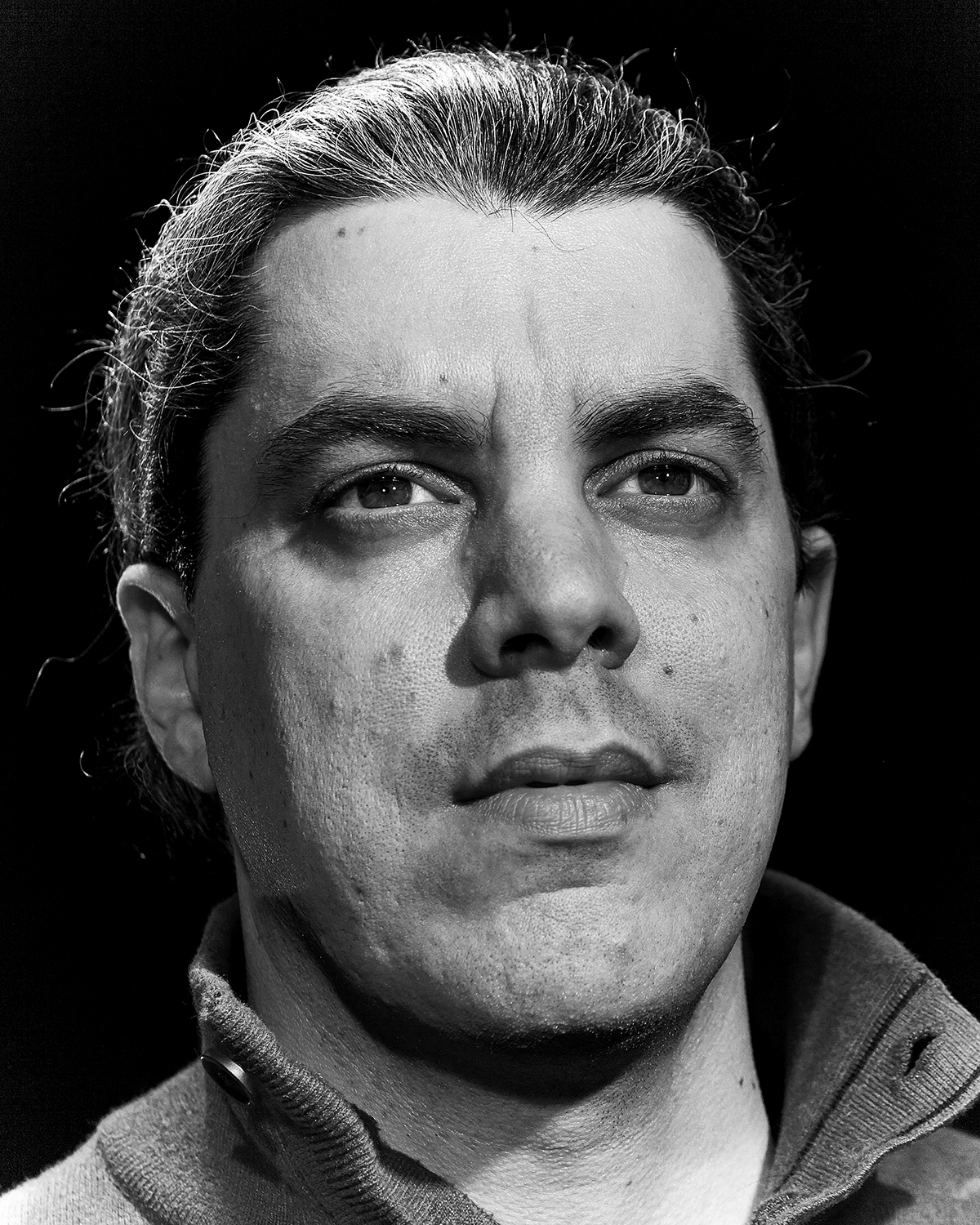
Photograph by Jeff Brown. Styling by Maryelle O’Rourke/Team.
AN ANONYMOUS INTERNET IS GOOD FOR DEMOCRACY
Andrew Lewman
Tor Project
Despite revelations that the NSA tried to destabilize it, Tor—the world’s best and most popular anonymous Web software and server network—is the tool most often used by dissidents and activists to evade repressive regimes in their home countries. It’s so good at hiding who you are that criminals use it, too: The Silk Road, an online drug market busted by the feds last year, was reachable only by Tor users who had access to the so-called Dark Web that the rest of us can’t even see. Despite that, Tor’s largest funder has been….the federal government, to the tune of millions per year. Why? Because even the government that gave you worldwide surveillance still believes that a world with an open Internet is freer than one in which the Web can be turned off at a dictator’s whim.
RESTORING FAITH
Cardinal Séan O’Malley
Archdiocese of Boston
As the head of the Archdiocese of Boston, O’Malley is the spiritual leader for hundreds of thousands living in the region. As a Cardinal, he’s one of the 218 most powerful men in a Church of 1.2 billion. And as the lone American in Pope Francis’s “G8” group working on Church government reform, he’s now trying to solve the Church’s deepest problems. In March, the pontiff named O’Malley one of three priests on the Vatican’s new eight-person anti-abuse commission, largely due to his pattern-breaking, empathetic work with victims in Boston’s sex-abuse scandal. Like Pope Francis, he’s the embodiment of a Church on a fulcrum: refreshingly humble, accessible, and progressive toward other religions, yet still representing its conservative ethos.
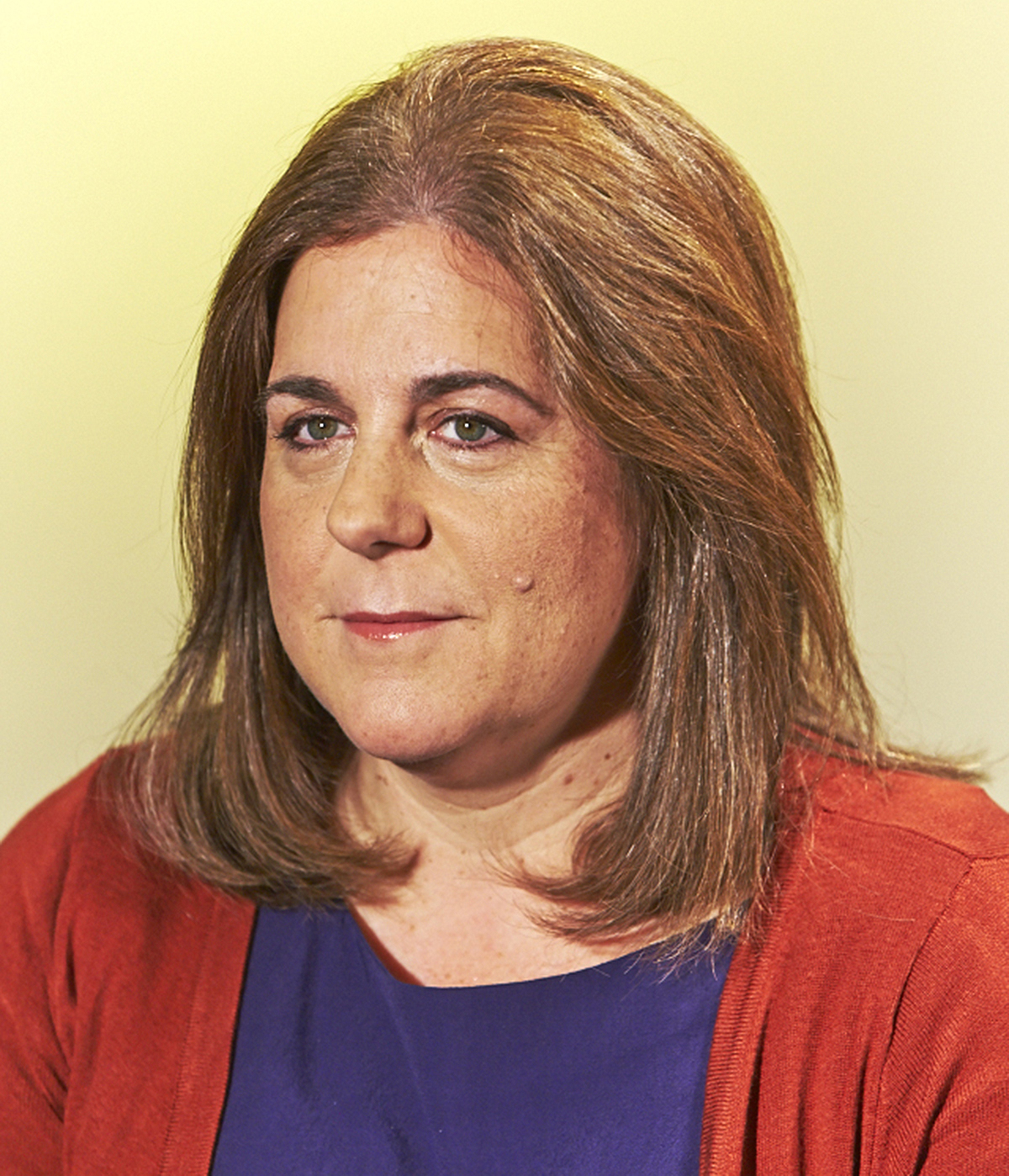
Photograph by Jeff Brown. Styling by Maryelle O’Rourke/Team.
CREATIVES DRIVE THE ECONOMY
Joyce Linehan
Chief of Policy, City of Boston
Linehan has one of the most powerful living rooms in all of progressive politics—hosting luminaries like Deval Patrick and Elizabeth Warren—and a great deal of her influence came from her years as a grassroots organizer…of rock ’n’ roll bands. A former punk-rock promoter from Dorchester, Linehan gradually found her power base in the city’s creative class, from musicians to museum directors. In the city’s first open mayoral race in two decades, she convinced her homeboy Marty Walsh that in Boston, the arts can be both a major engine of economic growth and a political constituency. Then she convinced artists that Walsh was on their side. Now that she’s Walsh’s director of policy, she’s not only thinking about the arts in a city that’s traditionally under-funded them—she’s also in a position to unleash a Boston renaissance.
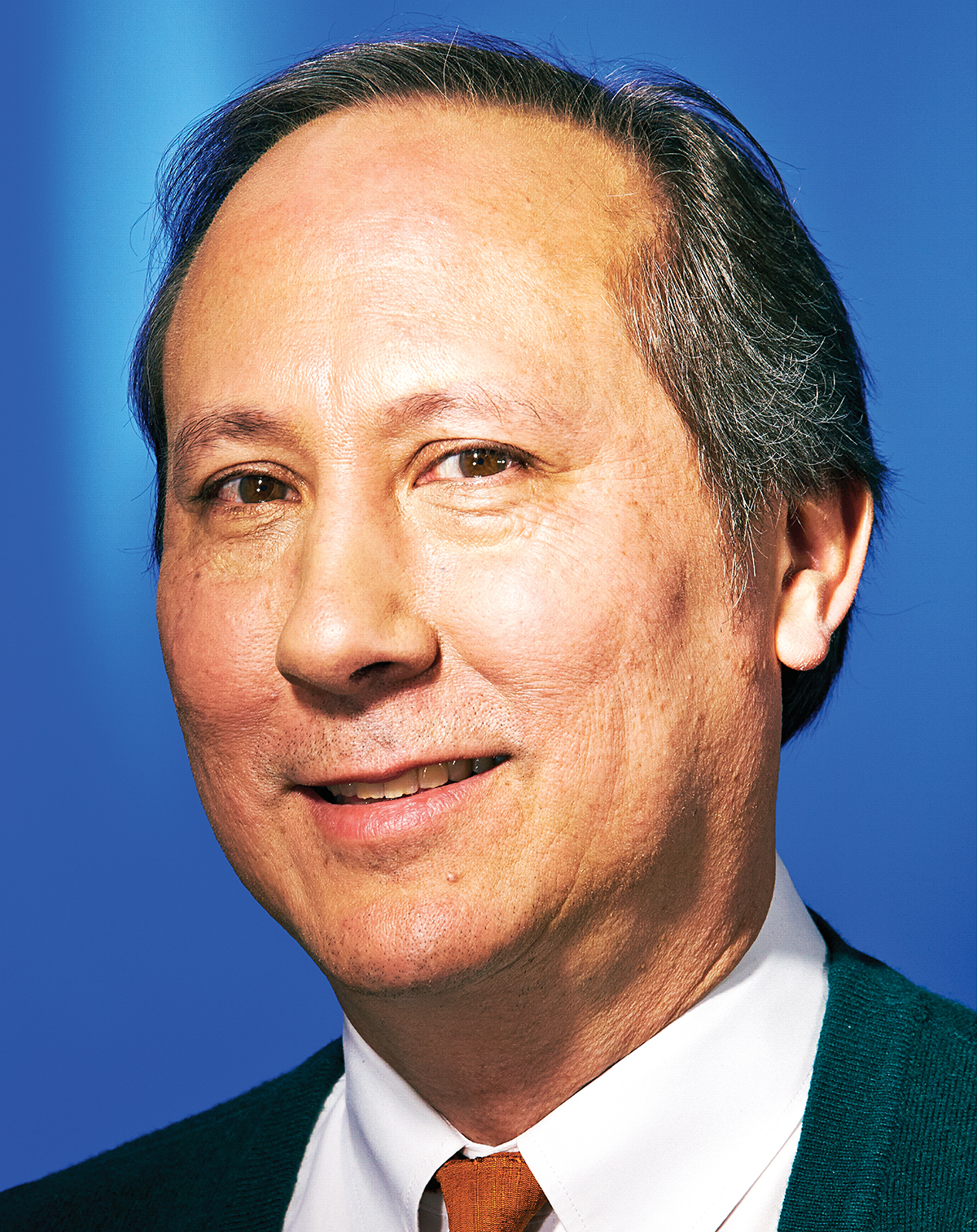
Photograph by Jeff Brown. Styling by Maryelle O’Rourke/Team.
EVERYTHING (MICROFUNDED) IS AWESOME
Reed Sturtevant
Awesome Foundation
Have an idea for a public art project? A tech startup? A meat-filled zebra piñata to entertain the lions at the zoo? If you can think of it, the Awesome Foundation will back it…as long as it’s awesome enough. Sturtevant cofounded the organization four years ago with nine “micro-trustees,” and the group is today made up of 90 chapters across 18 countries (some as far flung as Doha, Qatar). How it works: Each chapter meets every month to vote on applicants, each member donates $100, and each winner receives $1,000 in cash. To date, the organization has funded 935 projects, for a grand total of $935,000. Now that’s pretty awesome.
OUTING LIBERALISM
Carl Sciortino
Executive Director, AIDS Action Committee
Carl Sciortino may not have won last year’s Congressional election to succeed Ed Markey, but he made the biggest splash with an ad featuring his Tea Party–conservative dad. It went viral not just because it was clever, but because of Sciortino’s unashamed defense of liberalism. Now, 10 years after entering politics to challenge an opponent of same-sex marriage, Sciortino has been picked to take over the AIDS Action Committee—and taken the moment to publicly disclose his HIV-positive status, again refusing to be ashamed of who he is.


